I first broached the concept of the destructiveness of couples therapy in a conversation with Kate Hamilton about her book Mad Wife. She, in an interview with
, said couples therapy can be abusive because it is designed to preserve the relationship, not the people inside of it. And wow did that statement ring true.This is obviously not always the case. There are probably many marriages that benefit greatly from a safe space to unpack their problems (are there??). However, there are times when the couples therapy room is not safe. There are times when staying and working can actually harm the people inside the marriage.
A little background of my own experience in couples therapy. My ex and I saw three different therapists over our 19 year relationship. The first was before we were married, right after his dad died of cancer. I don’t recall that we saw her very long but I think I was concerned that his grief would impact our entry into our marriage (we got engaged six months after his dad died). The therapist wasn’t a great fit and I don’t recall us having specific issues we were coming in with but of course there must have been something that prompted me reaching out to a couples therapist and scheduling a session. (Or was it my instinct that this relationship wasn’t right and we needed some help and yet I ran right past that red flag??)
The second time was shortly after the birth of my second child. The first 11 months of my second child’s life were some of my hardest. I think I was struggling with postpartum depression. I had my two kids very close together (two years, three months) and I wasn’t ready to get pregnant with my second when I did. Having one child was manageable but to then go to having two children both in diapers was an insanity I was not prepared for. I desperately hated my life and was wrecked by my husband’s ability to waltz out the door each morning unencumbered by children.
So we started meeting with Richard on Tuesdays mornings and my mom came over to watch my kids.
I’m not sure how long we worked with Richard either. I don’t think it was even a year. What I recall from those sessions is a focus on how I needed to verbalize my expectations. That I couldn’t be upset with my husband if I didn’t tell him what I needed or expected from him.
I mainly just wanted him to come from work as soon as he could. To not golf on the weekends. To see all that needed doing without me having to tell him. For him to have had his life just as upended as mine had been by the presence of these two children.
I think I was the one who said it was time to stop. Not because things were better but because I was tired of the same conversations being held week after week with little to no improvement on my happiness. Instead, I received blame on top of my unhappiness that I was expecting too much from my husband. (My ex interprets this as me “firing” this therapist because he didn’t agree with me).
I wish Richard had noted my extreme distress, had been trained to identify the signs of PPD and suggested individual therapy for me as we continued our joint work. I don’t recall that being mentioned.
The third time we entered marriage therapy was in May 2021 after the pandemic broke our marriage. I had quit working after turning in a collaboration in May 2020 and deciding I wouldn’t take on another project until the kids were back in school (we had no idea how long that would take). My ex didn’t ask me to do this but taking turns who was manning the kids was pushing us both to the brink of insanity. He is a financial planner with clients. I worked with authors on a project based schedule so I could hit pause on my work while he could not. It seemed the obvious solution.
But then I was essentially a stay at home mom during a time when no one left the home aka there were no breaks. Despite this arrangement, I wanted him to understand just how much I was carrying and had been while working part-time. When I read Fair Play I felt like I finally had a resource to say: See! It isn’t just me! But our Fair Play discussion did not go as planned.
The next day I asked my therapist for a recommendation for a marriage therapist. We started with Jane over zoom several weeks later.
We worked with Jane for a year and a half, until we ultimately decided to separate in September 2022.
Jane did her best. But there were several issues. One was that my ex lied repeatedly during our sessions, something I didn’t find out about until we had been working with her for almost a year. Two was that he would say all the right things in the session, and yet when we were at home, it felt like nothing had changed. He said he wanted to work on the marriage but it didn’t feel like it. I felt like I was going crazy.
Three was that I tried to call out destructive behavior on his part and I felt like she just gave it a pass.
Four was that our marriage was already over. He had already left. I just didn’t know it.
I now look back and am so angry about the countless hours and thousands of dollars we spent on that couch. Because you cannot get anywhere in therapy unless everyone is being honest and open in those sessions.
Some might also say it is abusive to be in a room where you are claiming to work on a relationship but have started a relationship with someone else.
I recently learned that my child’s therapist is the daughter of that second marriage therapist. This was a very strange realization and when she asked jokingly whether he was any good, I said: well, we stayed married for another ten years after working with him! The truth is, the very issues that came up in therapy with her dad were the same ones we were hashing out with Jane. Nothing had changed. We were still locked in the same damn dance. But this time, I was very tired of the steps.
wrote an important essay about her own issues with marriage therapy which you can read here. She writes this:“The harsh truth is that some marriages aren’t salvageable without abandoning yourself, and in that case, it’s advisable to walk away.”
But the whole institution of marriage prompts women to abandon themselves. It is right there in the vows and in the expected name change that erases her previous existence and subsumes her as a product of the patriarchy. Wives were to submit to their husbands. This was how hetero marriage was set up. Now we’ve moved past these outdated ideas, but we wonder why marriage as a structure no longer functions. Because it was never designed to be a partnership of equals.1
Marriage teaches us to tolerate abuse. Because the vow that we make, to stick with this person through better or worse, tells us that it will get better or even if it doesn’t, we said we’d stay. No matter how bad it gets. Better or worse, folks! Keep your side of the bargain.
It is hard for me to consider the entire marriage therapy industrial complex as anything but a tool of the patriarchy. Here’s another book to read, another retreat to attend, another specialist to see! There is always something else to try! Don’t throw in the towel!
Meanwhile we all know who marriage truly serves.
The only couples therapist I have seen doing the important work of calling out how the patriarchy shows up in relationships is Terry Real. Real is the author of a number of books, the most recent being US: Getting Past You & Me to Build a More Loving Relationship, a book I ordered before the death of my marriage but our marriage died before I had a chance to read it. The New York Times recently published a profile of his work with one of their writers here. He spoke with Jancee Dunn (author of How to Not Hate Your Husband After Kids, one of the best titles out there and a book I most definitely bought and my ex despised) at the New York Times Well Conference, a clip of which I link below.
What I love about Terry is he is placing the blame for the state of marriages today rightly at the feet of the emotionally immature men. He understands why they are incapable of showing up in relationships and discusses at length that it is how we raise boys to be men that stymies their ability to be good partners. (Listen to a podcast on this topic with him here).
This is one of the reasons why so many women aren’t interested in finding a man (only 34% of single women are actively looking for a relationship). Because they know the work involved in getting a man to open up, to be an equal partner, to show up for you in the way you need. They are no longer willing to do all that labor.
Obviously we don’t want people just throwing in the towel on a whim. Divorce, as we know, is a brutal, expensive, taxing process. Obviously marriage takes work. Obviously there will be therapists who will try and help you communicate or say the unsayable or dig underneath the issues that stand in for deeper seated issues (in the clip below from Showtime’s Couples Therapy, they have a code for their problems, aka “the tomatoes”). My issue is the amount of time and money we spend trying to fix relationships when it is clear both people would be served by leaving. It is hard for me to even watch Couples Therapy given the level of dislike and disrespect that is often present in that room. Yes, sometimes it improves over the course of the show, somewhat. But I wonder, if you fast forward a few years, will these same couples have slipped back into old patterns? Is couples therapy really like putting a Bandaid on an infected wound? It covers the problem somewhat but the same issues are still festering below the surface? Will all these couples be like me and my ex, back in the therapy room ten years later fighting about the same damn shit?
Many times women do not realize they are in abusive situations, and then they enter couples therapy where they are further abused. Where they are made out to be the problem and thus they try and change and contort and accommodate in order to save the relationship but further squash themselves. Where they are gaslighted repeatedly, and let me tell you, that shit is deeply, deeply disorienting.
I plan to share stories of women who were harmed by couples therapy as well as several therapists who have seen this firsthand in future posts. I am obviously a fan of therapy as a whole and would not be where I am today without it, but couples therapy I have mixed thoughts about. All that opposite action and trying to get your spouse to love you the way you need to be loved? Part of me is like: we are who we are. If you don’t feel loved by your spouse, find someone who loves you the way you need to be loved. And if you still can’t feel loved, maybe there is some inner work you need to do, and no amount of validation and affirmation from someone else will fill that hole.
The above is a note I found in my phone from 2022 while we were in the throes of couples therapy. I long struggled with words of affirmation (you can read a bit about why here). But knowing what I know now, there was a reason why I didn’t want to give him that praise. My body knew what was going on, even though my mind didn’t. Do you see how the couples therapy was harming me? By asking me to validate and exalt the very person who was betraying me? By making me think with a little work on my part, I could finally give him what he needed and all would be fixed?
Reader, this marriage was dead. It was over. It wasn’t even on life support. And yet we kept trucking, kept showing up, kept working. For what? And what damage did that do to our souls?
I get it. It is heartbreaking to give up on a dream. So often I feel like the pain of divorce is admitting to yourself, admitting to the world: I was wrong. I thought this was my person. I thought this would last forever. That’s where the shame lies when we give up. It feels like failure.
But as many divorced women will tell you, it isn’t failure, it is freedom. I wish that could be the goal of couples therapy. Not fixing what is clearly broken. But freedom to find a life that isn’t.
Have you been helped by couples therapy? Hurt by it? I’d love to hear in the comments below.
P.S. I shared my thoughts on split custody over on
’s Cup of Jo this week! Don’t miss it and the comments section, which as usual, is full of juicy discussion and further insights.Did you know that liking this post, restacking it, or leaving a comment helps it find more readers? If you are reading this as an email, there is a heart button at the top and bottom of this email. Click on it and it will take you to the Substack website where you can also leave a comment. If you are reading it online, again, just click the heart button at the top or bottom of this post or the icon of two arrows which allows you to restack it. I appreciate your support!
FURTHER READING:
My friends
and have just launched a podcast on these themes called - a must listen!
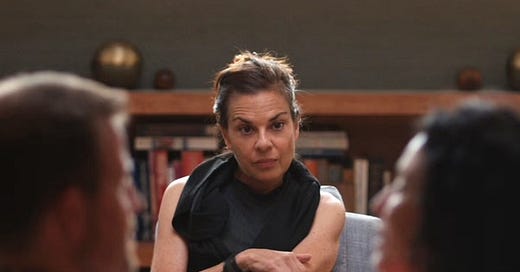


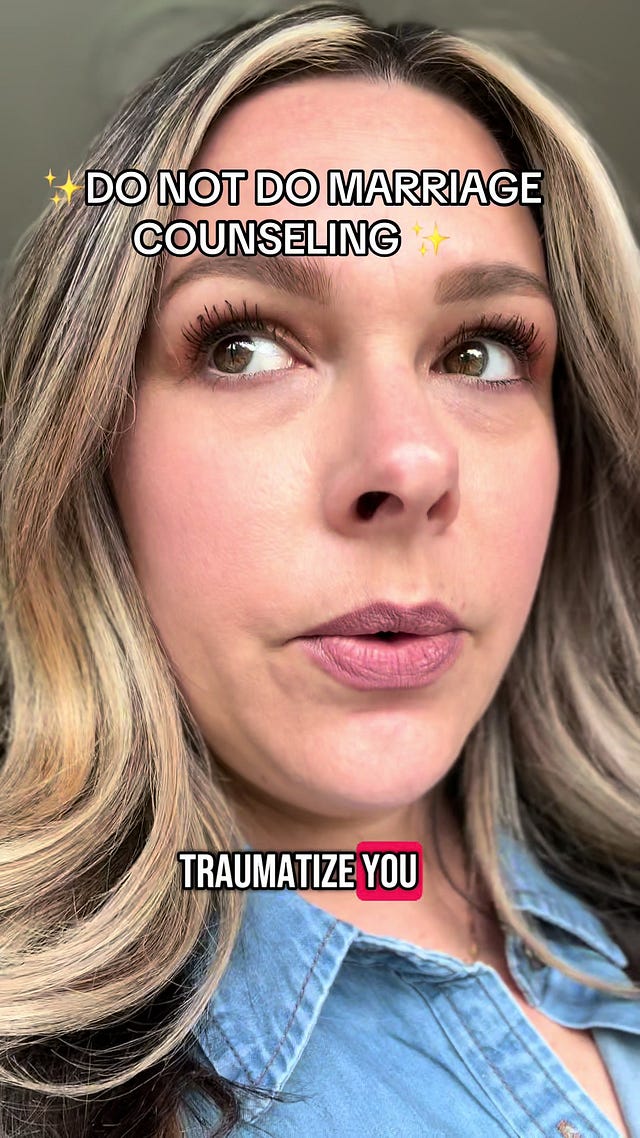


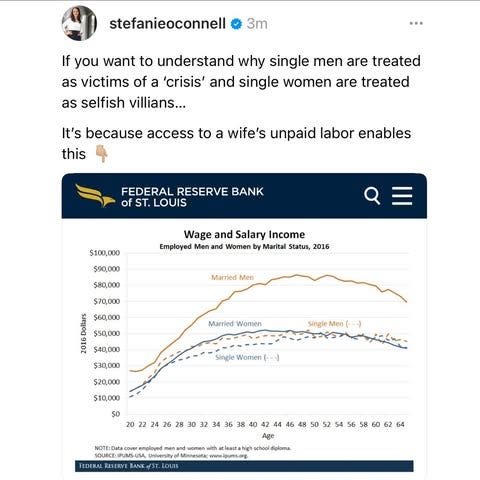

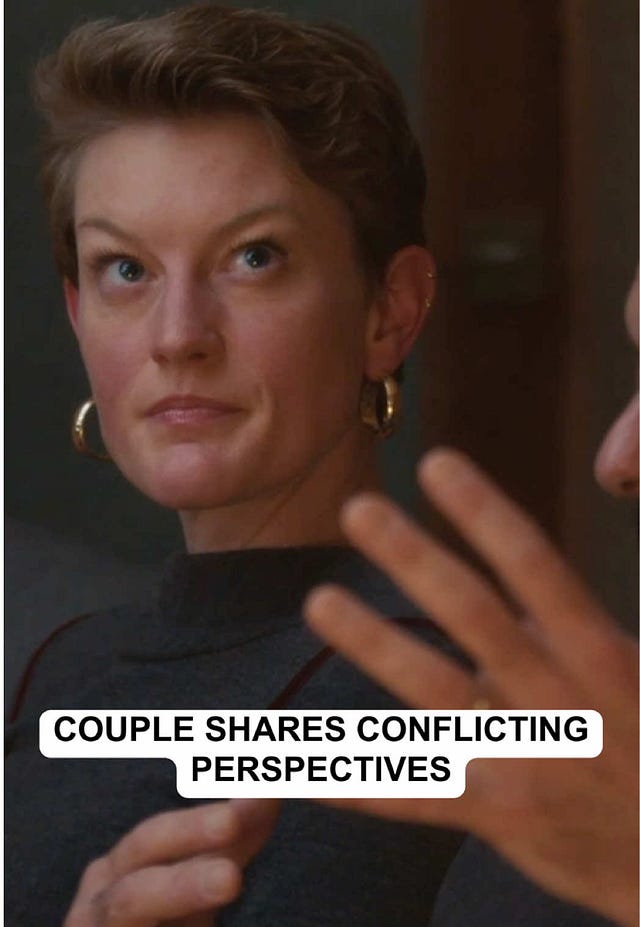
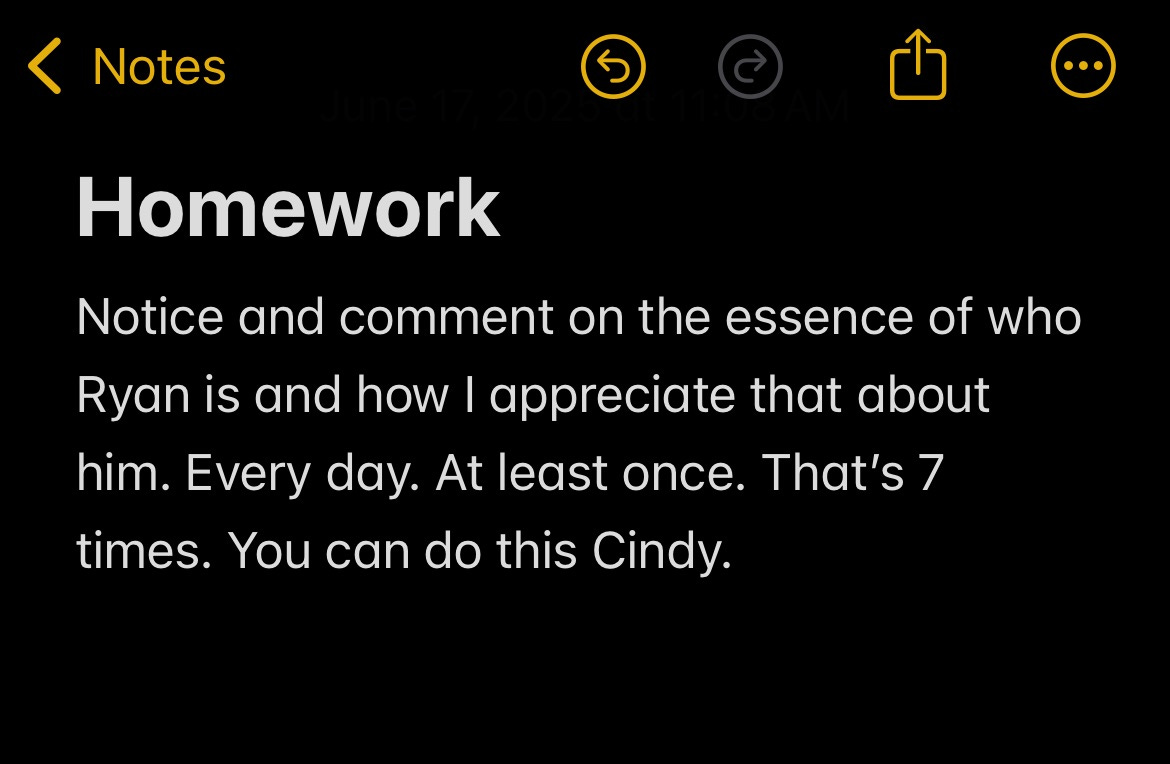




I wanted to offer a different perspective here. I am not judging anyone who chose or experienced things differently from me. My comment is self-reflection.
I used to think our couples therapy was “toxic” because my therapist validated my husband’s feelings and concerns and not just mine. Back then, I knew what the problems in our marriage were and they were almost exclusively his. Though I vaguely acknowledged that I probably contributed something to the dysfunction, I couldn’t articulate how. I saw our therapist validating him as a way of enabling him.
I thought a licensed therapist should help him see all the things he needed to change. I came in armed with therapy-speak like “mental load” and “emotional labor”, tearfully explaining why my husband was f-ing up and how much he was hurting me. I was waiting for the Terry Real moment — for the therapist to turn to him and show him wounded child.
I had heard this from women in my life and on TikTok. I adopted their words as the language for my own unhappiness. I was unhappy! And it was definitely my husband’s fault.
But then I noticed that loads of those same women divorced, fell in love, and then were making similar complaints in short order about the next man. And then the next. Was the problem just immature men? Or was there a common denominator in the women too?
In truth, it’s probably
both. To be clear, I knew my husband had his role. He did need to grow. But the light bulb moment for me was when I realized that my power resided in how I chose to conduct myself — in how I treated him and how well I chose to love him, regardless of whether I felt he “deserved” it.
I had to learn how to step out of my own pain and frustration so I could hold his. I learned how to create joy and peace for myself and not outsource it to him or others. I gave cheerfully rather than counting all the things I thought were unfair. I cultivated gratitude in place of bitterness and resentment. By focusing on myself, I (slowly) stopped obsessing over his faults.
Over time, he reciprocated. Never exactly in the way I wanted. And I learned to accept and love him as he was, not for who I wanted him to become.
I went first. Not him. I changed and that changed our marriage. I do not see that as losing myself. I felt 10-feet tall for the first time in a long time. I actually liked myself and my life, which I was actively writing in my own hand, not his.
I avoid couples who wear the longevity of their marriage on their sleeve. There should be NO prize for staying married. I am divorced, and I stayed married way too long. It's normal for people to change and grow. It's nice to grow at the same rate and in the same direction, but it's not a given. There should be no shame for moving on when it's necessary.